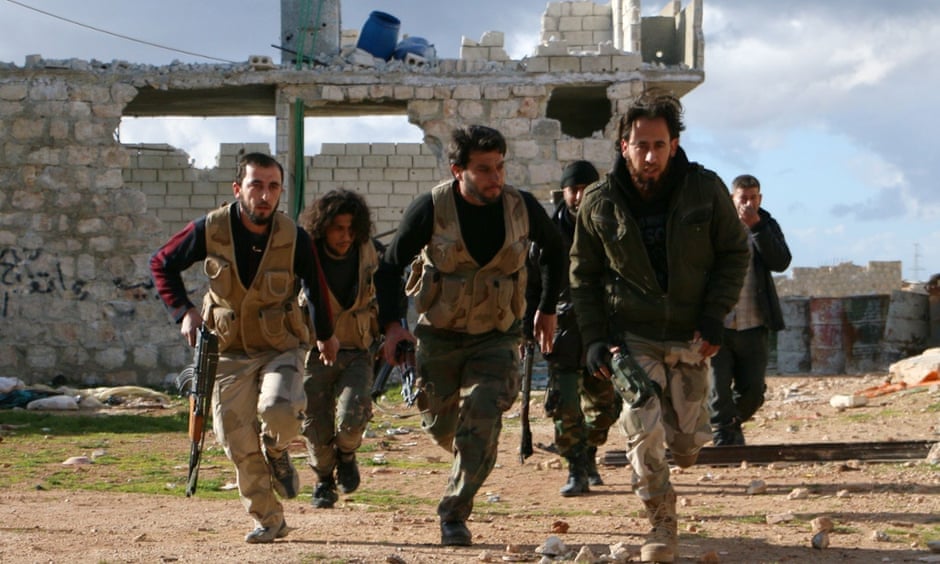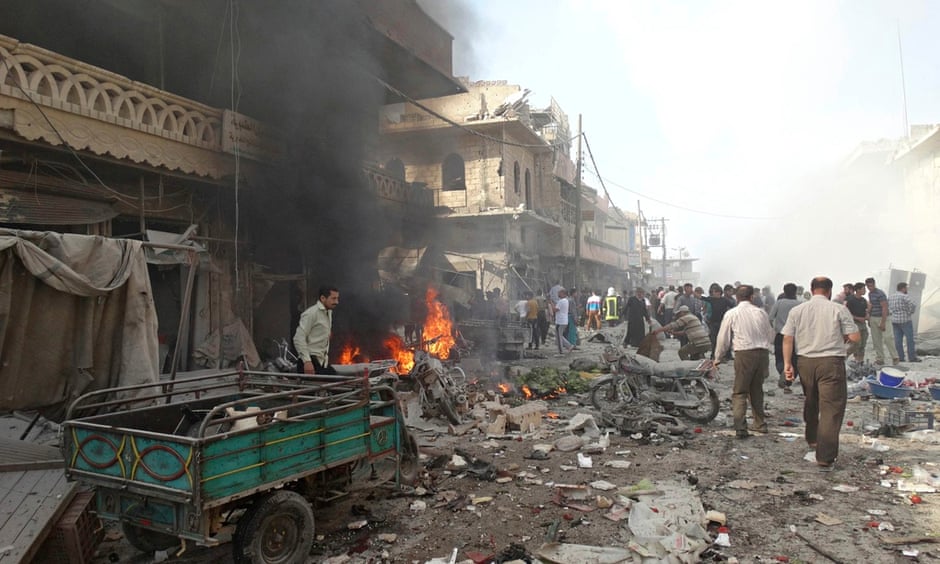'Most egregiously, bombardments continue and the regime has resumed arrest raids on civilians. Dozens of people have been tortured to death. The politicians and diplomats say a local cease-fire is in effect in Moadamiya, but they have abandoned us to the Assad regime’s brutal hands. De Mistura said this month that “President Assad is part of the solution,” but the regime has already shown that it is not serious about compromise and has no regrets for destroying the country. If the United Nations cannot even enforce a local cease-fire in a single town, what makes de Mistura think he can do it in Syria’s largest municipality?
Coalition warplanes crisscross Syria every day. Where are the airdrops of food or medical supplies for the hundreds of thousands of Syrians besieged by the Assad regime in Moadamiya and elsewhere?
Such glaring hypocrisy is bound to turn more Syrians toward the Islamic State. Correcting the hypocrisy should be a morally obvious choice. The world cannot help Syrian civilians by prodding us into negotiations with bloodthirsty murderers.'











